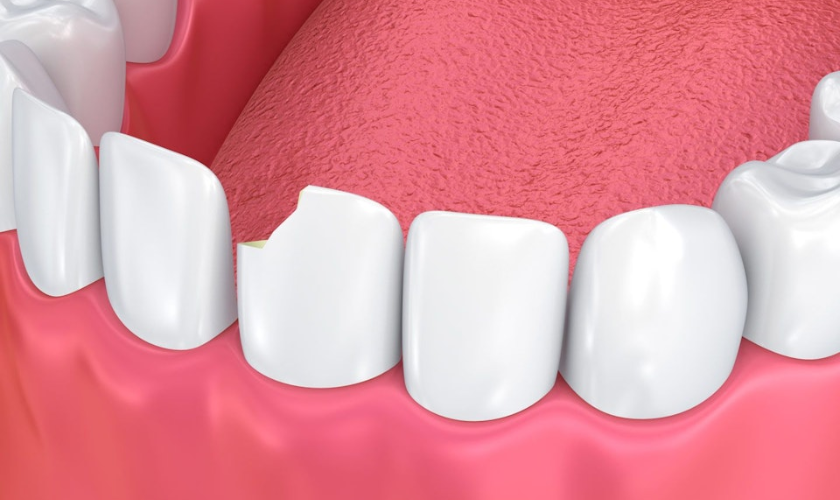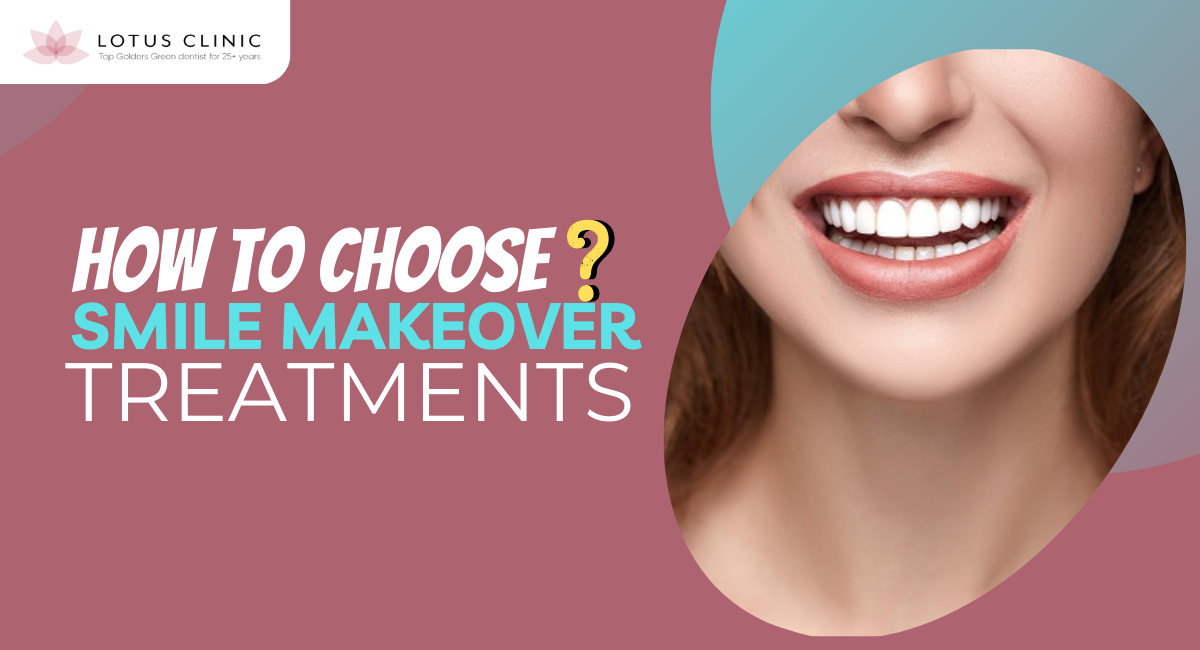943 Finchley Rd, London NW11 7PE
How Dental Bonding Can Repair Your Chipped Tooth Quickly and Affordably?

When a tooth becomes chipped or fractured, it can be distressing both aesthetically and functionally. Fortunately, dental bonding offers a quick and affordable solution to restore the tooth’s appearance and strength. Dental bonding is a cosmetic dental procedure that involves applying a tooth-coloured resin material to the damaged tooth and bonding it securely to restore its natural shape and appearance.
Chipped teeth can result from various causes, including accidents, trauma, or biting down on hard objects. Regardless of the cause, addressing chipped teeth promptly is essential to prevent further damage and maintain oral health. In this blog, we will delve into the world of dental bonding, exploring its benefits, procedure, and aftercare tips. By understanding the effectiveness of dental bonding in repairing chipped teeth, you can make an informed decision about restoring your smile quickly and affordably.
What Is Dental Bonding?
Dental bonding is a versatile cosmetic dentistry procedure designed to repair chipped, cracked, or discoloured teeth, restoring both their appearance and functionality. It involves the application of a tooth-coloured composite resin material to the affected tooth, which is then sculpted and shaped to match the natural contours of the tooth. This resin is carefully bonded to the tooth’s surface using a special curing light, creating a strong and durable restoration.
Materials used in dental bonding typically include:
- Composite resin: A tooth-coloured material that mimics the natural shade and translucency of enamel.
- Bonding agent: A type of adhesive that securely bonds the resin to the tooth’s surface.
- Curing light: A specialised light source is used to harden and set the resin material.
Dental bonding offers several advantages in cosmetic dentistry, including:
- Restoring chipped, cracked, or decayed teeth.
- Closing gaps between teeth.
- Reshaping misaligned or uneven teeth.
- Improving the appearance of discoloured or stained teeth.
- Enhancing overall smile aesthetics with natural-looking results.
Causes and Consequences of Chipped Teeth
Chipped teeth can occur due to various factors, including:
- Trauma or injury to the mouth, such as a fall or sports-related accident.
- Biting down on hard objects like ice, pens, or popcorn kernels.
- Tooth decay or weakened enamel from poor oral hygiene habits.
- Bruxism (teeth grinding) during sleep or due to stress.
Chipped teeth can have significant implications for both oral health and aesthetics. They may lead to:
- Increased risk of tooth decay and gum disease due to exposed tooth structure.
- Sensitivity to hot or cold temperatures and discomfort while eating.
- Altered bite alignment and potential strain on surrounding teeth.
- Negative impact on self-confidence and reluctance to smile or speak openly.
Timely treatment for chipped teeth is essential to prevent further damage and maintain oral health. Dental bonding offers a quick and effective solution to repair chipped teeth, restoring their appearance and function while safeguarding overall dental well-being.
Benefits of Dental Bonding for Chipped Teeth
Dental bonding offers several benefits for repairing chipped teeth:
- Quick and Convenient Procedure: Dental bonding is a relatively fast procedure that can often be completed in a single dental visit, providing immediate results and saving you time.
- Affordable Compared to Alternative Treatments: Dental bonding is a cost-effective option for repairing chipped teeth, making it accessible to a wide range of patients seeking cosmetic dental improvements.
- Natural-Looking Results: Bonding materials are carefully matched to the colour and texture of your natural teeth, ensuring seamless integration and a lifelike appearance.
- Preservation of Tooth Structure: Unlike some alternative treatments, such as dental crowns or veneers, bonding requires minimal removal of tooth enamel, helping to preserve the integrity of your natural teeth.
- Minimal Discomfort and Downtime: Dental bonding typically involves minimal discomfort both during and after the procedure, with little to no downtime required for recovery. This means you can return to your daily activities with minimal disruption after treatment.
These benefits make dental bonding an attractive option for individuals seeking an efficient, affordable, and aesthetically pleasing solution for repairing chipped teeth.
The Dental Bonding Procedure
Dental bonding is a relatively straightforward procedure that typically involves minimal discomfort and downtime. Here’s an overview of what to expect during the dental bonding process:
- Consultation and Examination: The process begins with a consultation and examination with your dentist, during which they will assess the extent of the chipped tooth and discuss your treatment goals and options.
- Tooth Preparation: Next, the affected tooth will be prepared by gently roughening its surface to help the bonding material adhere more effectively.
- Bonding Material Application: A tooth-coloured composite resin material will then be applied to the chipped area of the tooth.
- Sculpting and Shaping: Once applied, the bonding material will be carefully sculpted and shaped to achieve the desired appearance and restore the natural contours of the tooth.
- Curing and Polishing: Finally, a special light or laser will be used to harden (cure) the bonding material, followed by polishing to blend it seamlessly with the surrounding teeth.
Throughout the procedure, your dentist will ensure your comfort and address any concerns you may have. With minimal discomfort and downtime, dental bonding offers a convenient and effective solution for repairing chipped teeth and enhancing your smile.
Aftercare and Maintenance Tips
Once you’ve undergone dental bonding to repair a chipped tooth, it’s essential to follow proper aftercare and maintenance guidelines. It ensures the longevity of the restoration. Here are some tips to help you care for your bonded teeth effectively:
- Regular Dental Check-ups and Cleanings: Schedule regular dental check-ups and cleanings with your dentist to monitor the condition of your bonded teeth and address any issues promptly. These routine visits help maintain your oral health and ensure that your dental bonding remains in optimal condition.
- Avoiding Habits that Can Damage Bonded Teeth: Be mindful of habits that can potentially damage your bonded teeth, such as biting hard objects, chewing on ice, or using your teeth as tools. Avoiding these habits can help prevent premature wear or damage to the bonding material.
- Practice Good Oral Hygiene: Maintain a consistent oral hygiene routine by brushing your teeth at least twice a day and flossing daily. Good oral hygiene helps prevent plaque buildup, which can contribute to staining and decay around the bonded area.
- Be Cautious with Staining Substances: Limit your consumption of staining substances like coffee, tea, and red wine, as these can discolour the bonding material over time. If you do consume staining beverages, rinse your mouth with water afterwards to help minimise staining.
- Wear a Mouthguard: If you participate in activities that pose a risk of dental injury, such as contact sports, consider wearing a mouthguard to protect your bonded teeth from trauma.
By following these aftercare and maintenance tips, you can help prolong the lifespan of your dental bonding and keep your smile looking its best for years to come.
Transform Your Smile With Dental Bonding
Dental bonding emerges as a versatile and efficient solution for repairing chipped teeth, offering quick results, affordability, and natural-looking aesthetics. By addressing the causes and consequences of chipped teeth and exploring the benefits and procedures of dental bonding, individuals can make informed decisions about their oral health. With proper aftercare and maintenance, bonded teeth can maintain their integrity and appearance for years to come, ensuring a confident and radiant smile. Remember, timely treatment and regular dental check-ups are key to preserving the beauty and functionality of your smile.







